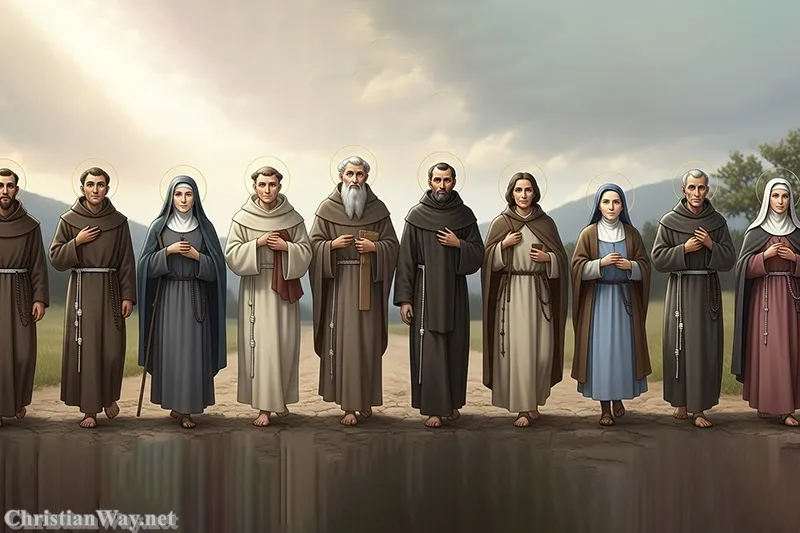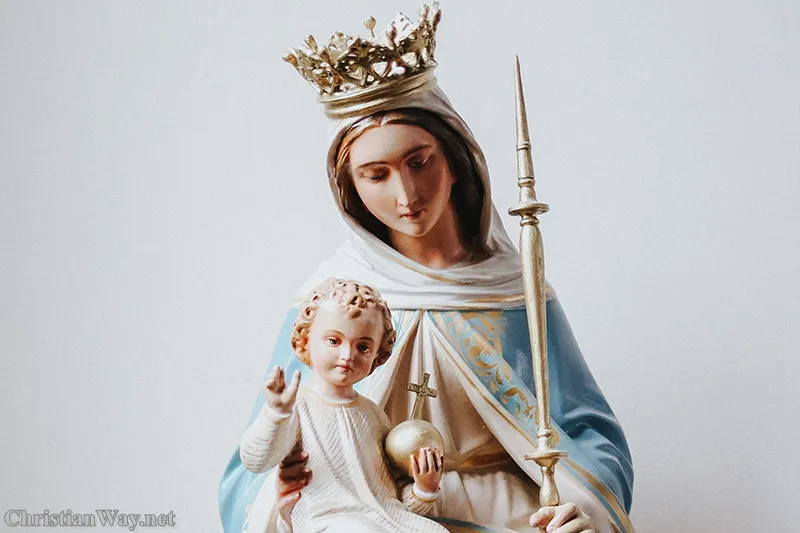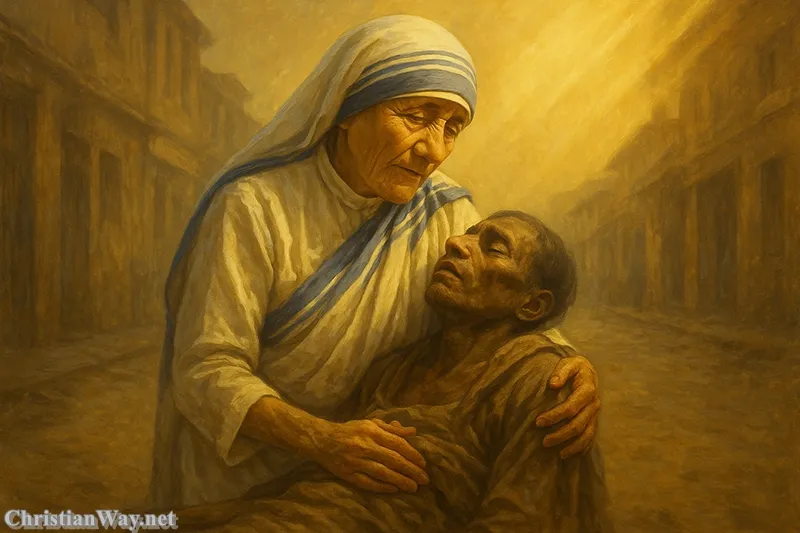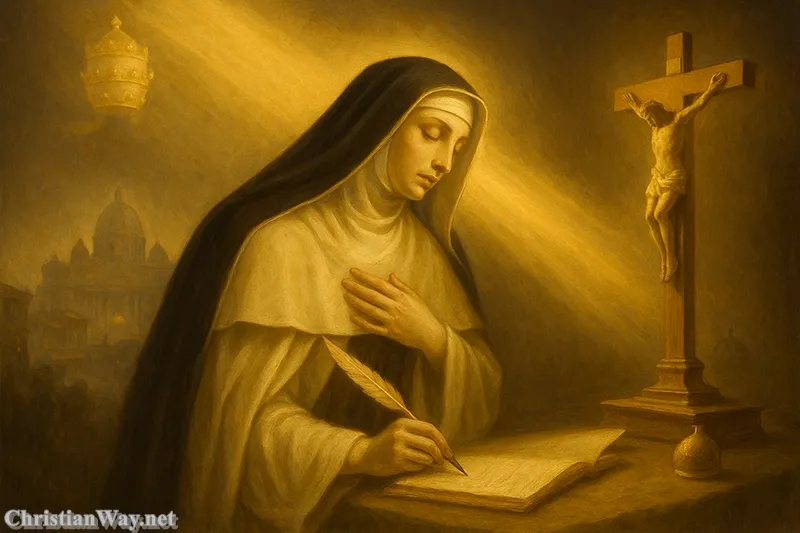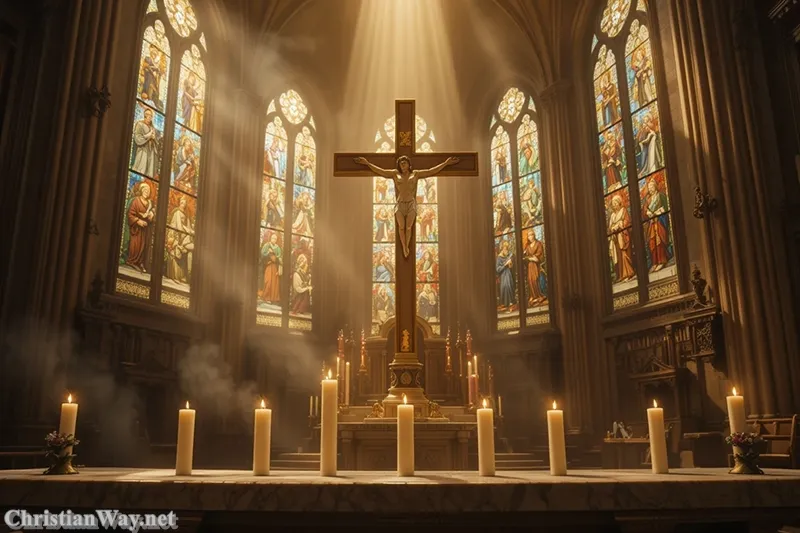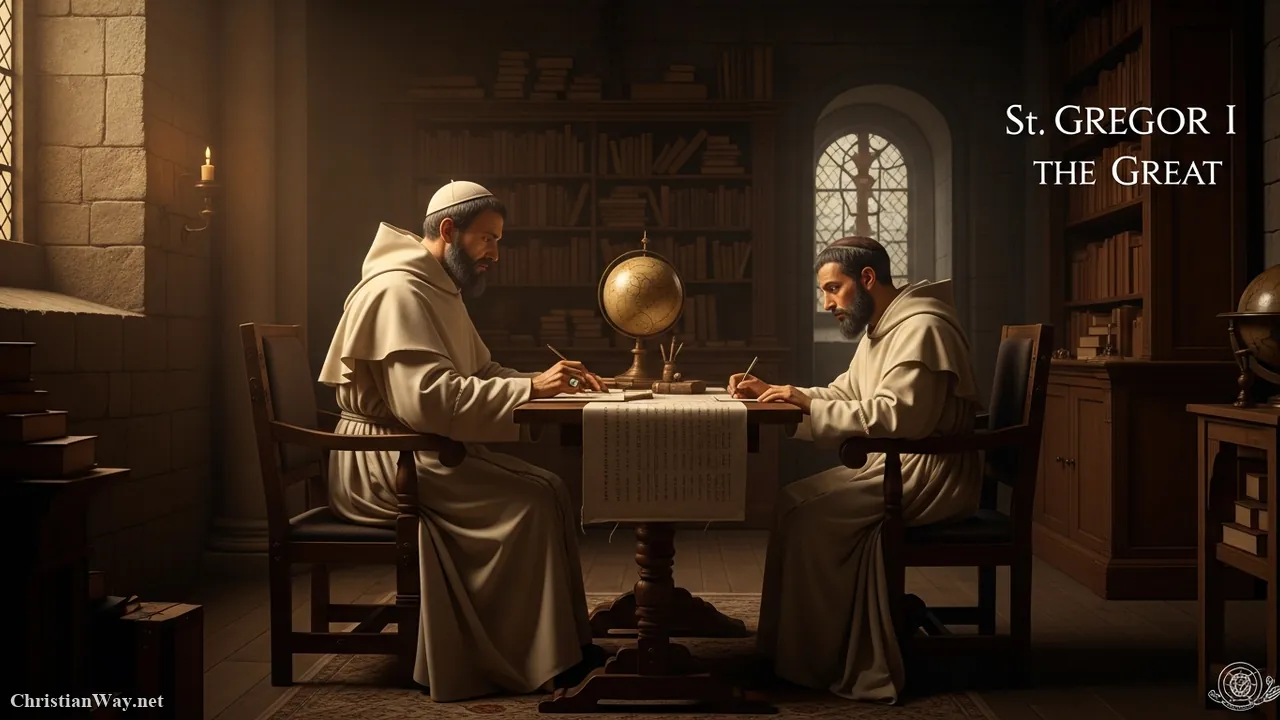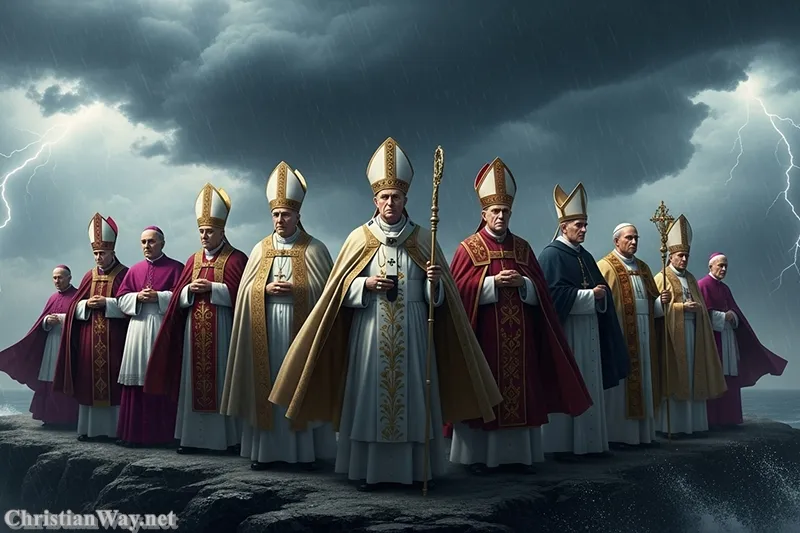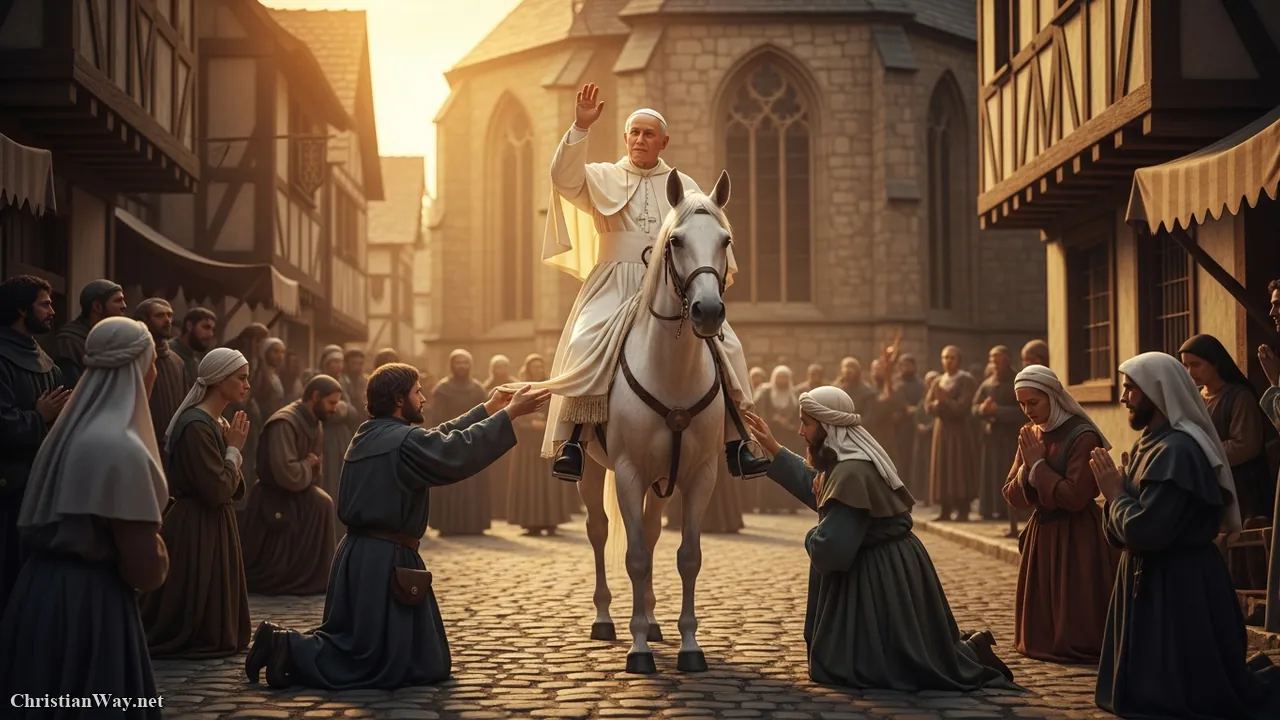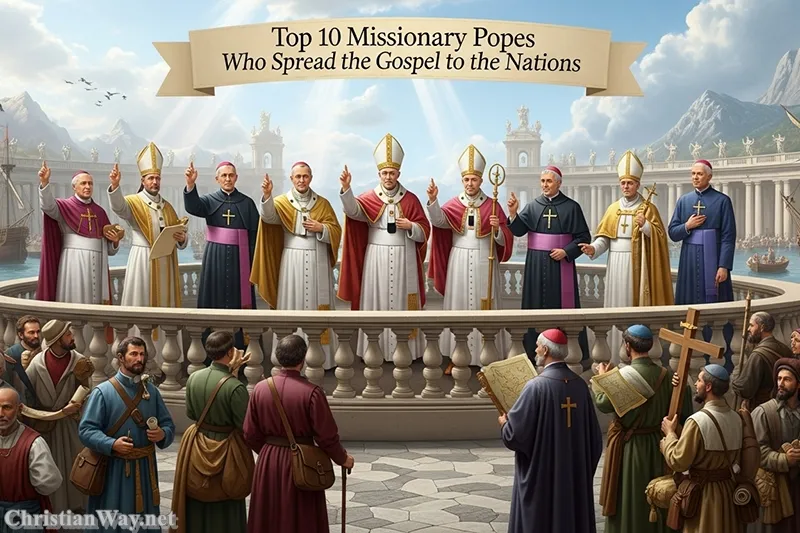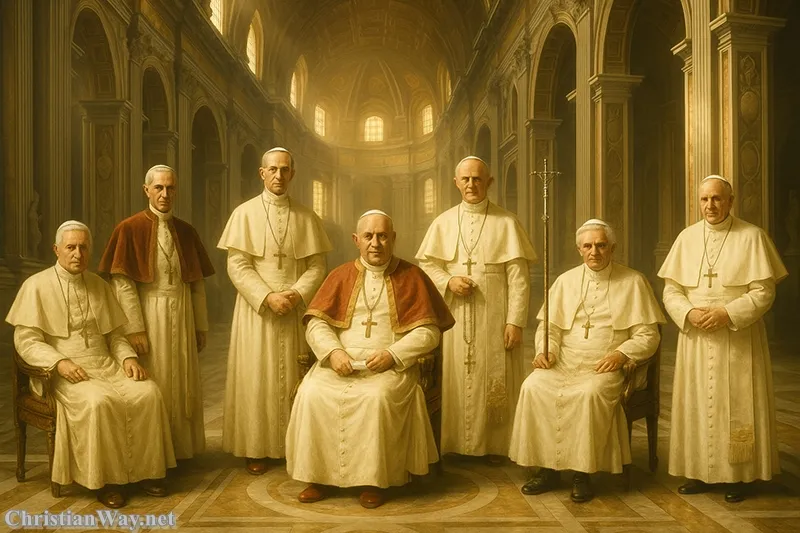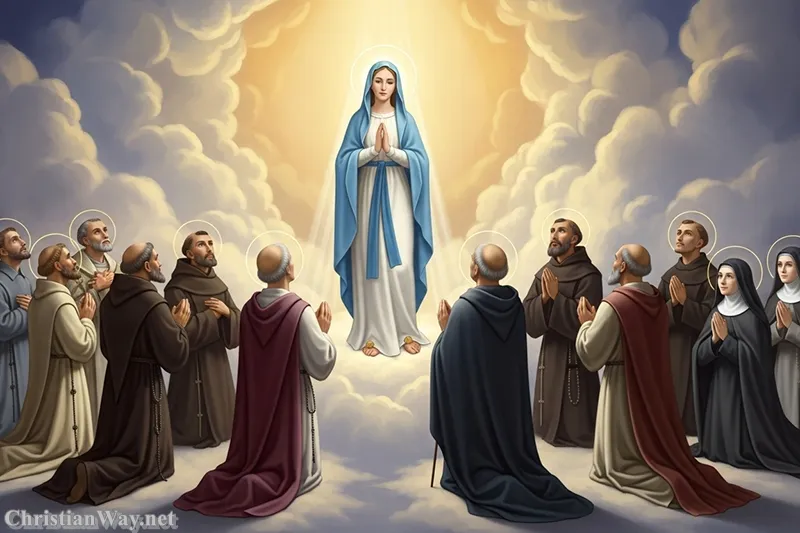Dear friends, peace be with you.
When we speak of the “Global Church,” we are not merely discussing geography or demographics. We are speaking of the mystical body of Christ, stretching across oceans and centuries, held together by the tenuous but unbreakable thread of the Holy Spirit. In my years of ministry, I have often marvelled at how a faith that began with a handful of fishermen in Galilee could eventually embrace every culture and tongue on earth. Central to this story is the role of the successor of St. Peter—the Pope. The Papacy is not simply an office of authority; at its best, it is a ministry of unity, a “Servant of the Servants of God.”
As we explore this list together, I invite you to set aside the modern tendency to view history through the lens of politics or power. Instead, let us look with the eyes of faith. We are looking for those moments when the Holy Father did not just govern Rome, but truly strengthened the universal family of God. Some did this by traveling to the ends of the earth; others by fighting for the Church’s freedom from kings; and some, simply by teaching us how to pray.
This journey takes us from the jet age back to the dusty roads of the Roman Empire. We will see how the Holy Spirit has used human vessels—frail and imperfect as they may be—to build a Church that is truly “Catholic,” meaning universal. It is my hope that in reading this, you will feel a deeper connection to the great cloud of witnesses who have gone before us, guiding the barque of St. Peter through the storms of history.
Let us turn our gaze to these shepherds of the flock.
Table of The Top 10 Popes Who Strengthened the Global Church
| Rank | Pope | Period | Key Contribution to Global Strength |
|---|---|---|---|
| 10 | St. John Paul II | 1978–2005 | The “Global Pastor” who visited 129 countries. |
| 9 | St. Paul VI | 1963–1978 | The “Pilgrim Pope” who first traveled to six continents. |
| 8 | St. John XXIII | 1958–1963 | Convened Vatican II to open the Church to the modern world. |
| 7 | Pope Pius XI | 1922–1939 | The “Pope of Missions” who ordained native bishops globally. |
| 6 | Pope Leo XIII | 1878–1903 | Championed the rights of workers worldwide (Rerum Novarum). |
| 5 | St. Pius V | 1566–1572 | Unified the Church’s prayer through the Roman Missal. |
| 4 | St. Gregory VII | 1073–1085 | Fought for the Church’s independence from secular rulers. |
| 3 | St. Gregory the Great | 590–604 | Sent missionaries to the edges of the known world (Europe). |
| 2 | St. Leo the Great | 440–461 | Defined the Petrine Unity amidst empire collapse. |
| 1 | St. Peter | c. 30–64/67 | The Rock and Archetype of all apostolic ministry. |
Top 10. St. John Paul II (1978–2005)
The Shepherd of the World
We begin our journey in recent memory with a man who needs little introduction. For many of us, St. John Paul II was the face of the Church for a generation. Before him, the Papacy was largely a stationary office; the world came to Rome. But Karol Wojtyła changed the geography of the faith. He realized that to strengthen a global Church, the shepherd must go to the sheep. By traveling to 129 countries, he touched the soil of nations that had never seen a Successor of Peter.
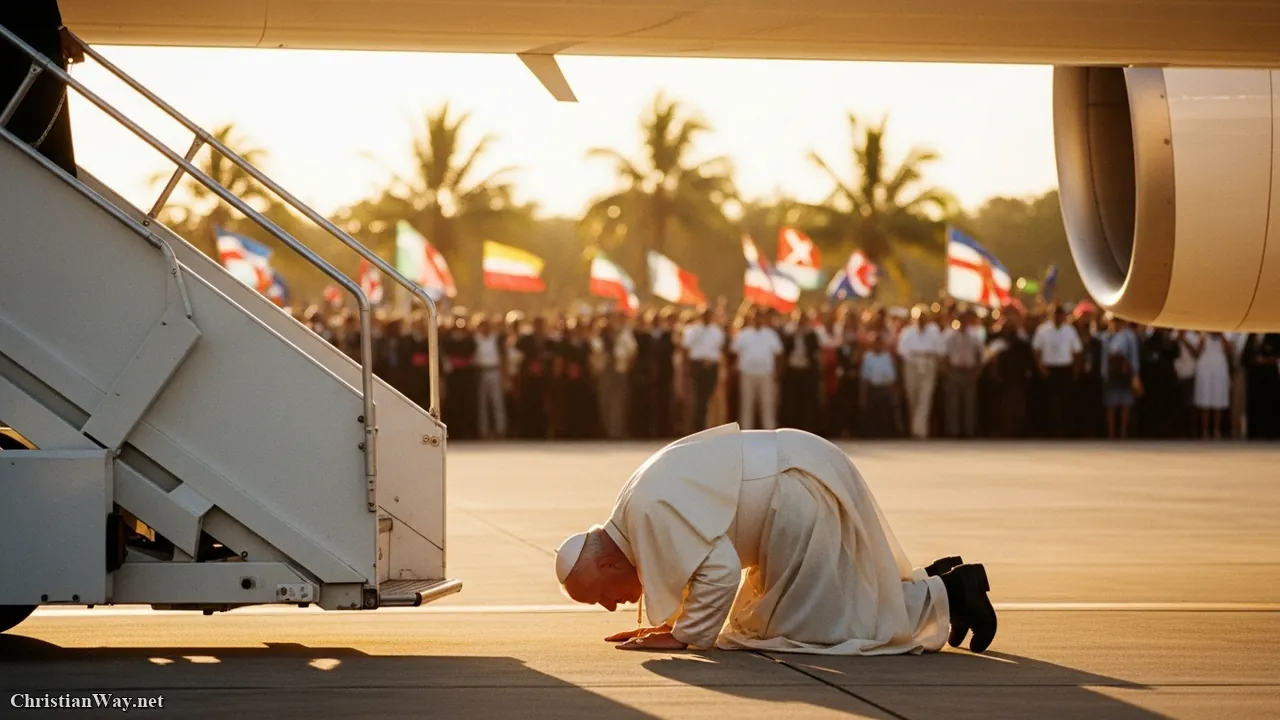
Theologically, he showed us that the Gospel is not European, but universal. Whether he was speaking to massive crowds in Manila, Denver, or Nairobi, he preached a “civilization of love” that transcended borders. He was instrumental in the fall of Communism, proving that spiritual strength can overcome geopolitical walls. His establishment of World Youth Day created a global rhythm of pilgrimage that continues to knit the young Church together today.
For us, his legacy is a reminder that we must not hide our light under a bushel. He challenged the modern believer to be unafraid, to step out into the “deep water” of the world. He taught us that the Church’s strength lies not in its fortresses, but in its missionary momentum.
Spiritual Highlights:
- Key Action: Initiated World Youth Days, uniting millions of young believers.
- Scripture: “Do not be afraid. Open wide the doors for Christ.”
Top 9. St. Paul VI (1963–1978)
The First Pilgrim
If John Paul II ran the race, St. Paul VI was the one who first stepped onto the track. It is easy to forget how radical it was when, in 1964, Paul VI boarded a plane to the Holy Land. He was the first pope to leave Italy in over a century and the first to fly. This was not tourism; it was a return to the roots. By meeting with the Ecumenical Patriarch Athenagoras in Jerusalem, he began to heal the thousand-year wound between East and West, embracing the true ecumenical spirit.
Paul VI bore the heavy cross of guiding the Church through the turbulent 1960s and the implementation of Vatican II. He was a man of deep dialogue, establishing secretariats for relations with non-Christians and non-believers. He understood that a “Global Church” must be a listening Church. His encyclical Populorum Progressio cried out for the development of peoples in the Global South, linking the Gospel inextricably with justice for the poor.
He teaches us the courage of the first step. Even when the world is chaotic and the future uncertain, the Christian must journey forth. He showed that the Papacy could be a bridge-builder, a pontifex, linking the ancient faith with the anxieties of modern man.
Spiritual Highlights:
- Key Action: First papal visit to six continents, earning the title “Pilgrim Pope.”
- Scripture: “How beautiful upon the mountains are the feet of him who brings good news.” (Isaiah 52:7)
Top 8. St. John XXIII (1958–1963)
The Opener of Windows
Known affectionately as “Good Pope John,” Angelo Roncalli was expected to be a caretaker pope. Instead, he surprised the world by calling the Second Vatican Council. He famously said he wanted to “throw open the windows of the Church” so that we could see out and the people could see in. This was a pivotal moment for the Global Church. Before this, the liturgy and governance were often rigid; after him, the Church began to breathe with the two lungs of tradition and renewal.
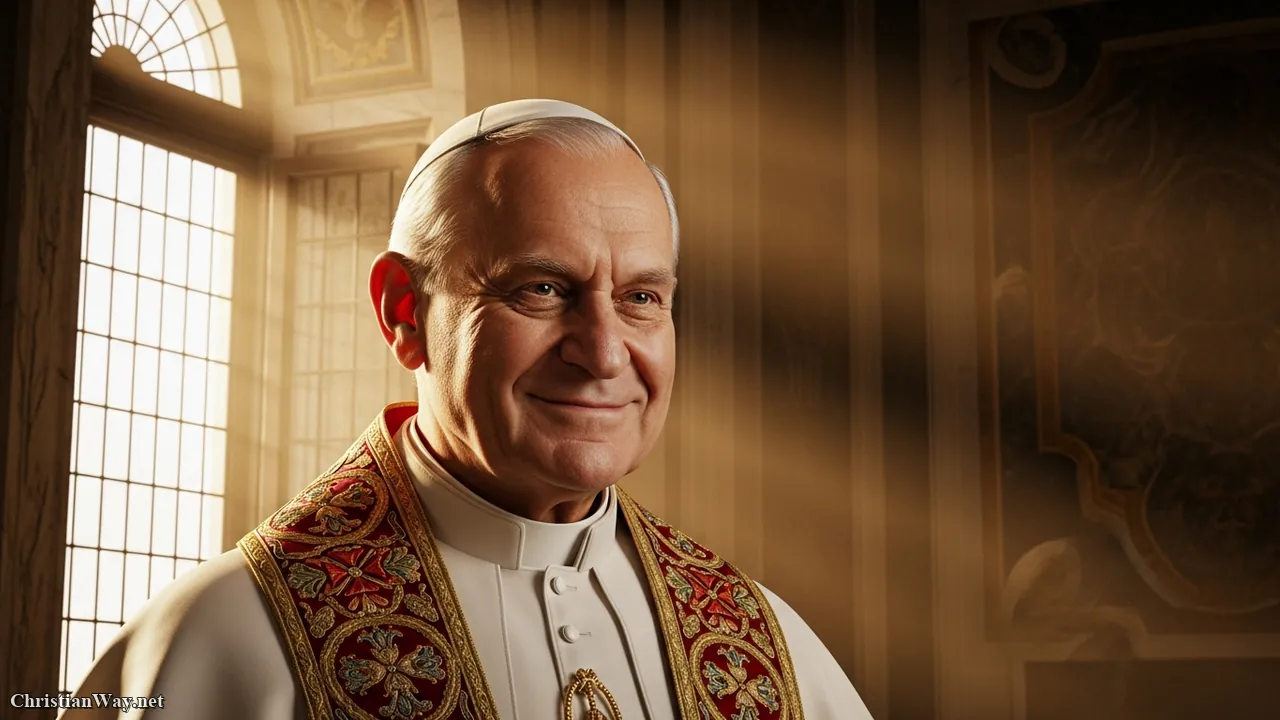
His heart was deeply pastoral. He saw the Church not as a museum to be guarded, but as a garden to be cultivated. By inviting bishops from every corner of the globe to Rome—including, for the first time, many native bishops from Africa and Asia—he made the Council a truly visible representation of the world. He shifted the Church’s posture from one of condemnation to one of mercy (medicine of mercy).
For us today, St. John XXIII is a reminder of trust in the Holy Spirit. He teaches us that we should not fear the changing times but embrace them with the light of the Gospel. He strengthened the Church by making her home warm and accessible to all.
Spiritual Highlights:
- Key Action: Convened the Second Vatican Council (1962–1965).
- Scripture: “See, I am doing a new thing! Now it springs up; do you not perceive it?” (Isaiah 43:19)
Top 7. Pope Pius XI (1922–1939)
The Pope of Missions
As we step back into the early 20th century, we meet a fierce and visionary leader, Pius XI. He is often called the “Pope of Missions,” and rightly so. In a time when colonialism was rampant, Pius XI made a bold, prophetic move: he demanded the formation of native clergy. He insisted that the Church in China, India, or Africa should not be a “foreign colony” led by Europeans, but a local Church led by its own sons.
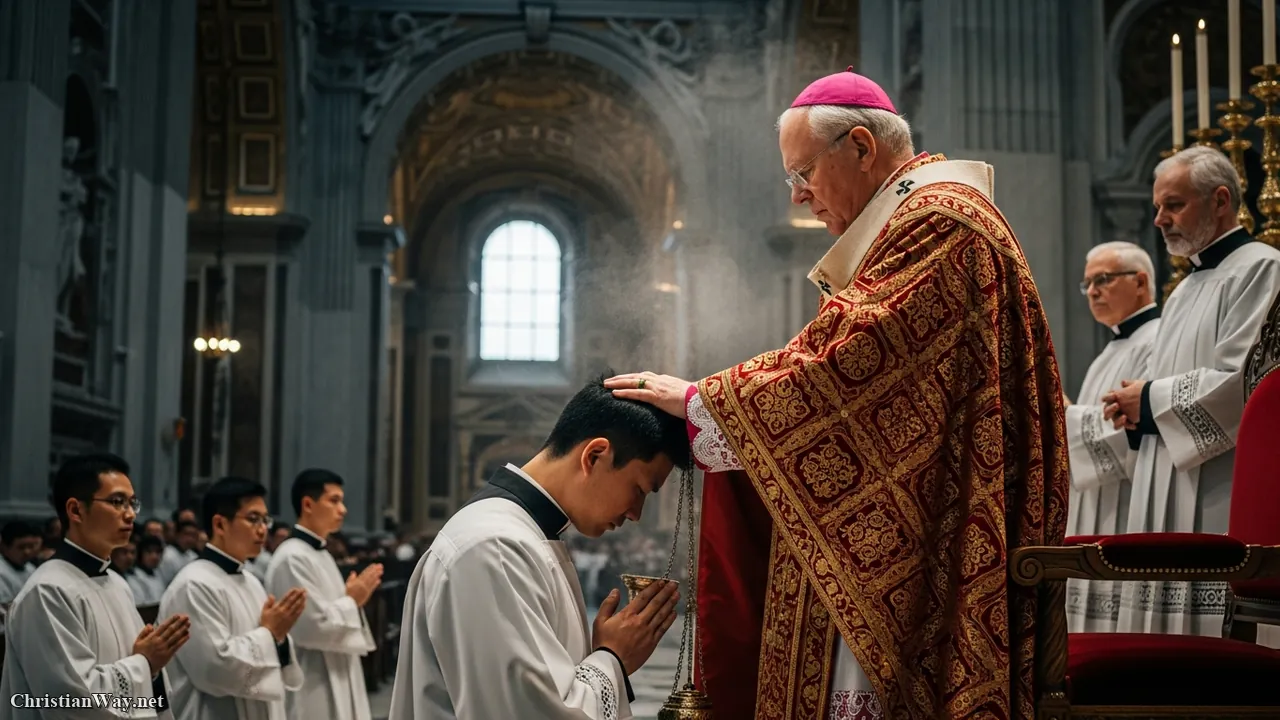
Against significant resistance, he personally consecrated the first six Chinese bishops in St. Peter’s Basilica in 1926. This was a thunderclap in history. It declared that the grace of Holy Orders belongs to every race and nation equally. He understood that for the Church to be truly global, it had to take root in the soil of every culture.
Pius XI challenges our own subtle prejudices. He reminds us that the image of Christ is reflected in every culture. By strengthening the local hierarchies, he built the infrastructure that allows the Global Church to thrive today in the Southern Hemisphere.
Spiritual Highlights:
- Key Action: Ordained the first native bishops for China and Japan; wrote Rerum Ecclesiae on missionary work.
- Scripture: “Go therefore and make disciples of all nations.” (Matthew 28:19)
Top 6. Pope Leo XIII (1878–1903)
The Teacher of Social Justice
In the late 19th century, the industrial revolution was tearing society apart. Workers were treated like machines, and the gap between rich and poor was widening globally. Into this fray stepped Leo XIII. With his landmark encyclical Rerum Novarum (On Capital and Labor), he strengthened the Global Church by giving it a social conscience. He boldly asserted the rights of workers to fair wages and unions, while also upholding the right to private property.
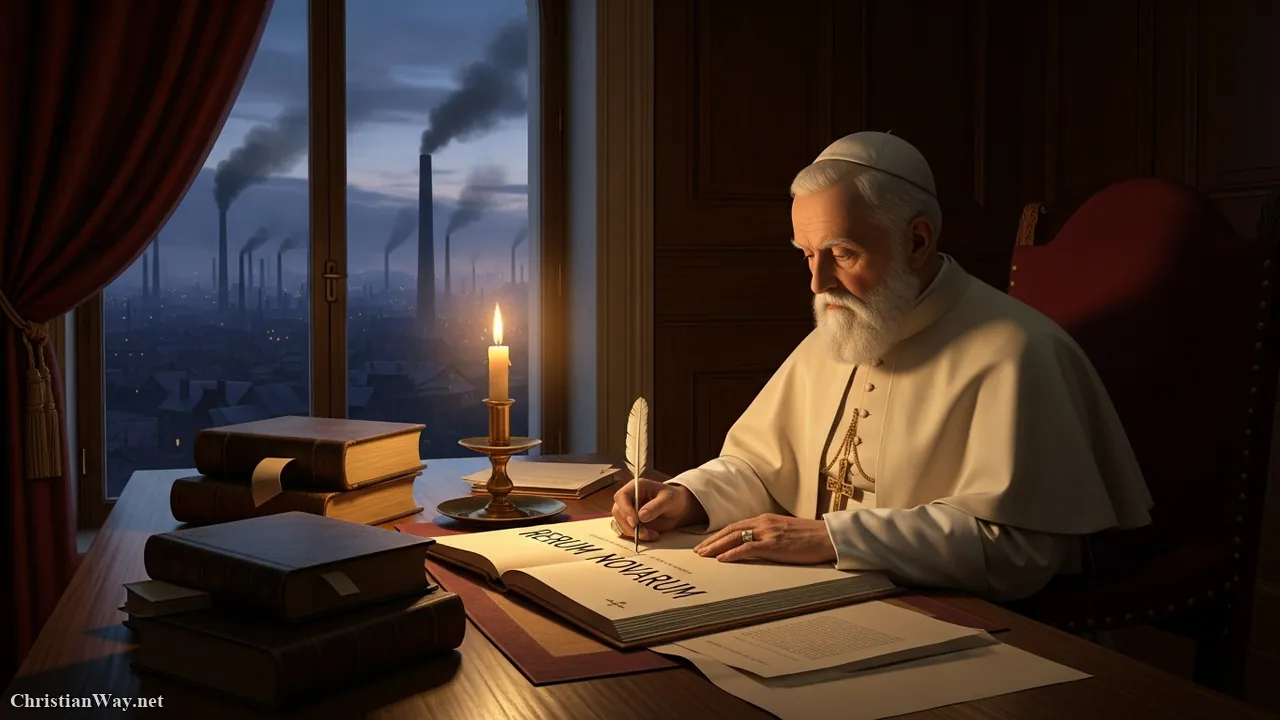
Leo XIII proved that the Church was not just concerned with the afterlife, but with the dignity of human life right here and now. This earned him the title “The Workers’ Pope.” His teaching became the foundation for modern Catholic Social Teaching, influencing laws and movements across the globe.
His legacy comforts us when we feel overwhelmed by societal injustice. He teaches us that the Gospel has something to say about economics, politics, and human dignity. He strengthened the Church by engaging with the modern world intellectually and morally, rather than retreating from it.
Spiritual Highlights:
- Key Action: Author of Rerum Novarum, the Magna Carta of social teaching.
- Scripture: “The laborer deserves his wages.” (1 Timothy 5:18)
Top 5. St. Pius V (1566–1572)
The Guardian of the Liturgy
Moving further back to the tumultuous 16th century, the Church was fracturing under the strain of the Reformation. Confusion reigned regarding doctrine and worship. St. Pius V, a humble Dominican friar, took on the monumental task of implementing the reforms of the Council of Trent. His greatest contribution to the Global Church was the standardization of the Liturgy. He promulgated the Roman Missal in 1570, which ensured that for the next 400 years, a Catholic could travel anywhere in the world—from Lima to Lisbon—and hear the same Mass, in the same Latin tongue.
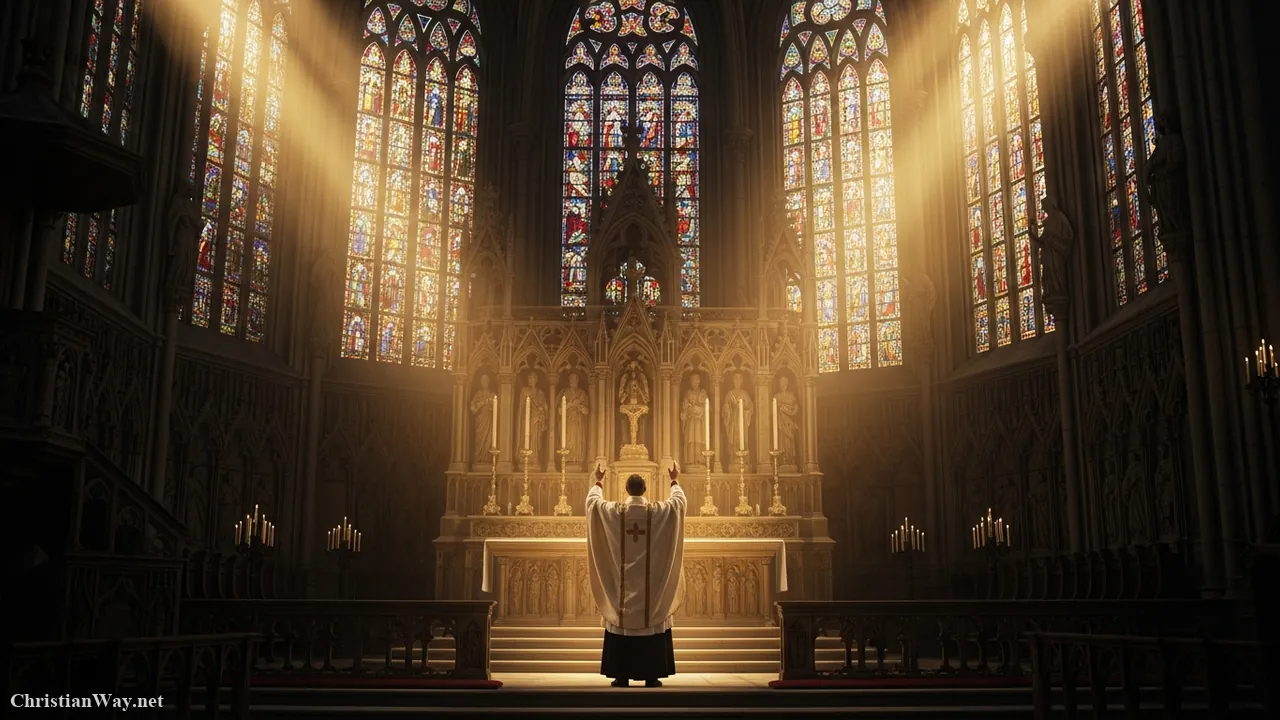
While we cherish the vernacular today, we must appreciate the stabilizing power of this act. It created a profound sense of global unity. It meant that the prayer of the Church was universal, not subject to the whims of local priests or princes. He also called for the Rosary to be prayed by all of Europe, attributing the victory at Lepanto to the intercession of the Blessed Mother.
St. Pius V teaches us the value of discipline and shared prayer. He strengthened the Church by giving her a common language of worship, reminding us that we are one body, praying with one voice to one Father.
Spiritual Highlights:
- Key Action: Standardized the Roman Missal and the Breviary; promoted the Rosary.
- Scripture: “Make every effort to keep the unity of the Spirit through the bond of peace.” (Ephesians 4:3)
Top 4. St. Gregory VII (1073–1085)
The Liberator of the Church
In the 11th century, the Church was in a perilous state, often treated as a department of the state. Kings and Emperors appointed bishops (lay investiture), often selling offices to the highest bidder. St. Gregory VII, a fiery reformer named Hildebrand, stood up to say “Enough.” He fought the famous “Investiture Controversy” to ensure that the Church, not the State, had the authority to appoint her own shepherds.
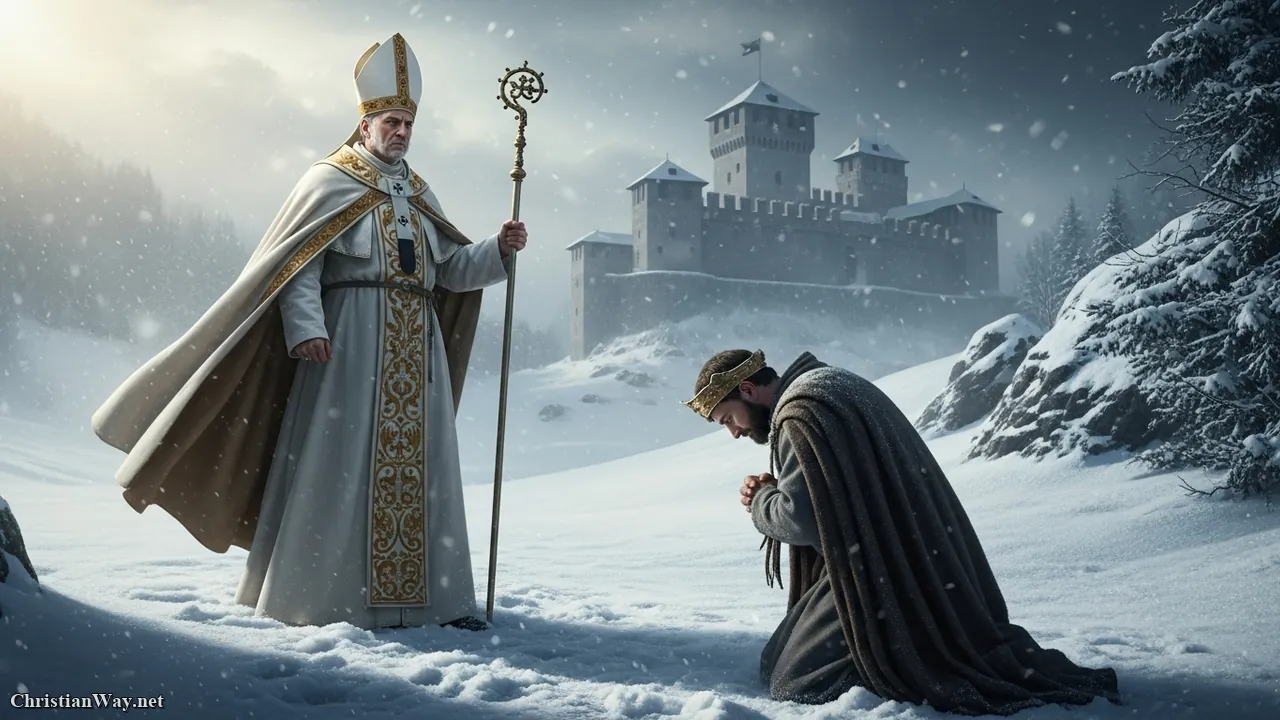
This was a struggle for the soul of the Global Church. If Gregory had failed, the Church might have dissolved into a collection of national state-churches, subservient to earthly power. By asserting the spiritual independence of the Papacy, he preserved the Church’s ability to speak truth to power.
Gregory’s life was hard; he died in exile, famously saying, “I have loved justice and hated iniquity, therefore I die in exile.” Yet, his sacrifice secured the freedom we enjoy today. He teaches us that spiritual integrity is worth fighting for, and that the Church’s loyalty must always be to Christ alone, never to a crown.
Spiritual Highlights:
- Key Action: The Gregorian Reforms; establishing the freedom of the Church from secular control.
- Scripture: “Render to Caesar the things that are Caesar’s, and to God the things that are God’s.” (Mark 12:17)
Top 3. St. Gregory the Great (590–604)
The Servant of the Servants
As the Roman Empire crumbled and Europe fell into the so-called “Dark Ages,” St. Gregory the Great stood as a beacon of light. He was the first monk to become Pope, and he brought a monastic heart to the Petrine office. He is pivotal to the “Global” Church because he was a visionary of evangelization. When he saw fair-skinned slaves in a Roman market, he famously asked who they were. “Angles,” he was told. “Not Angles, but Angels,” he replied.
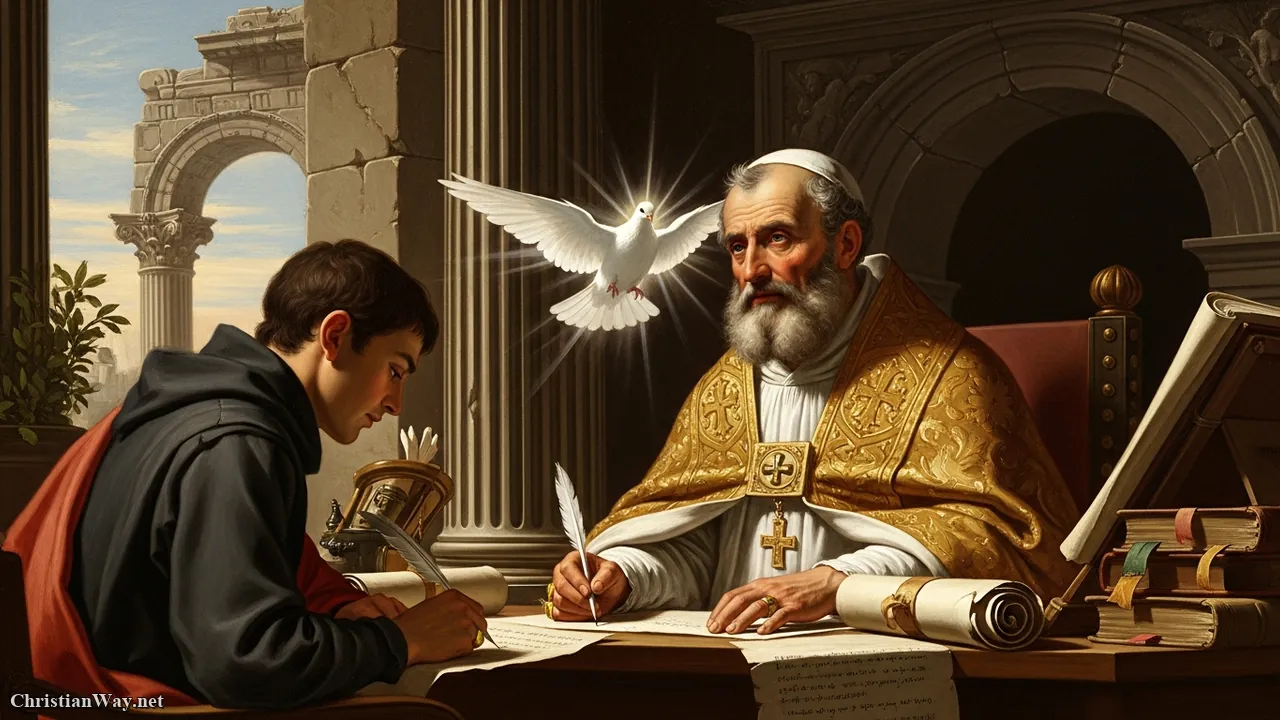
This compassion led him to send St. Augustine of Canterbury to missionize England. This was a radical expansion of the Church’s vision beyond the Mediterranean world. Gregory also organized the liturgy (Gregorian Chant is named for him) and cared for the poor of Rome with his own family wealth. He took the title Servus Servorum Dei (Servant of the Servants of God), defining the Papacy as a ministry of humility.
Gregory strengthens us by showing that even when civilization seems to be collapsing, the Church builds anew. He was a bridge between the ancient world and the medieval world, ensuring the faith survived and spread to new peoples.
Spiritual Highlights:
- Key Action: Initiated the Gregorian Mission to convert the Anglo-Saxons; standardized chant.
- Scripture: “Who is the greatest? The one who serves.” (Luke 22:26)
Top 2. St. Leo the Great (440–461)
The Doctor of Unity
In the mid-5th century, the Church was threatened by two massive forces: the physical invasion of barbarians and the spiritual invasion of heresy. St. Leo the Great stood firm against both. He is famous for riding out to meet Attila the Hun and, through his presence and prayer, persuading him to turn back from Rome. This act established the Papacy as a protector of the people when civil authority failed.

But his theological contribution was even greater. At the Council of Chalcedon, his “Tome of Leo” clarified the truth that Jesus is one person with two natures (human and divine). When his letter was read, the bishops cried out, “Peter has spoken through Leo!” This was a defining moment for the Global Church, anchoring our understanding of who Christ is.
Leo teaches us the power of conviction. In a world of fluid truths and fears, he stood as a rock. He strengthens us by reminding us that the Petrine ministry is a center of unity, holding the faithful together in the truth of Christ.
Spiritual Highlights:
- Key Action: His “Tome” settled the Christological controversy at Chalcedon; saved Rome from Attila.
- Scripture: “You are the Messiah, the Son of the living God.” (Matthew 16:16)
Top 1. St. Peter (c. 30–64/67)
The Rock
We arrive at the source. Simon, the fisherman from Capernaum. He was impetuous, fearful, and flawed—he denied the Lord three times. Yet, Jesus looked at him and saw the Rock upon which He would build His Church. St. Peter is number one not because of his administrative skills, but because he was the first witness. He was the first to run to the empty tomb; the first to preach at Pentecost; the first to open the Church to the Gentiles by baptizing Cornelius.
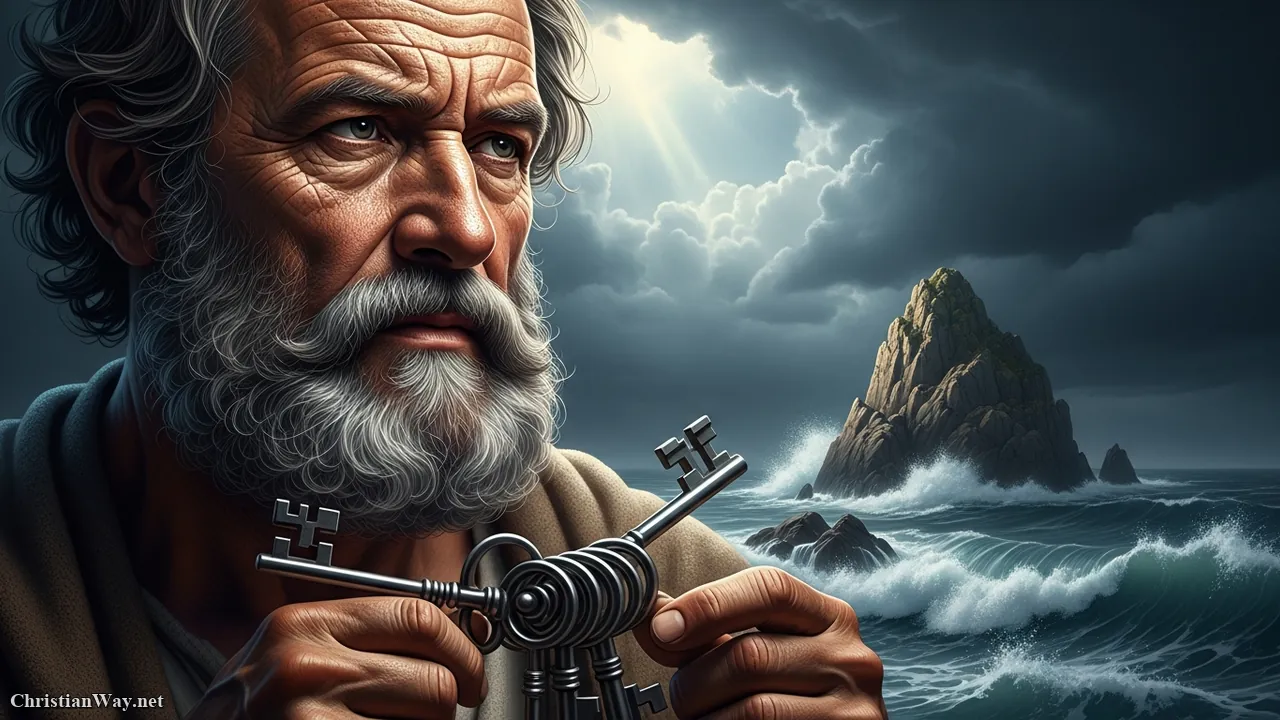
Peter’s ministry set the pattern for all who followed. He traveled from Jerusalem to Antioch, and finally to Rome, where he witnessed with his blood, crucified upside down in Nero’s circus. He is the ultimate symbol of the Global Church because he represents the transition from a local Jewish sect to a universal faith for all nations.
St. Peter comforts us because he was so human. He fell, but he got back up. His life strengthens the Global Church by reminding us that the Church does not rest on human perfection, but on the promise of Christ: “The gates of the netherworld shall not prevail against it.”
Spiritual Highlights:
- Key Action: The first confession of faith; the first sermon at Pentecost; the first Pope.
- Scripture: “You are Peter, and upon this rock I will build my church.” (Matthew 16:18)
Reflect and Pray
As we look back on these ten lives, we see a tapestry woven by the Holy Spirit. From Peter’s nets to John Paul II’s airplanes, the method changes, but the mission remains the same: to bring the love of Christ to the ends of the earth. These men were not perfect, but they were willing. They allowed God to use them to strengthen the brethren.
Perhaps today you can offer a prayer for the current Holy Father, and for all bishops and leaders of the Church. Pray that they may have the courage of Leo, the missionary heart of Gregory, and the humility of Peter. And may we, in our own small way, help strengthen the Church right where we are.
— Fr. John Matthew, for Christian Way

